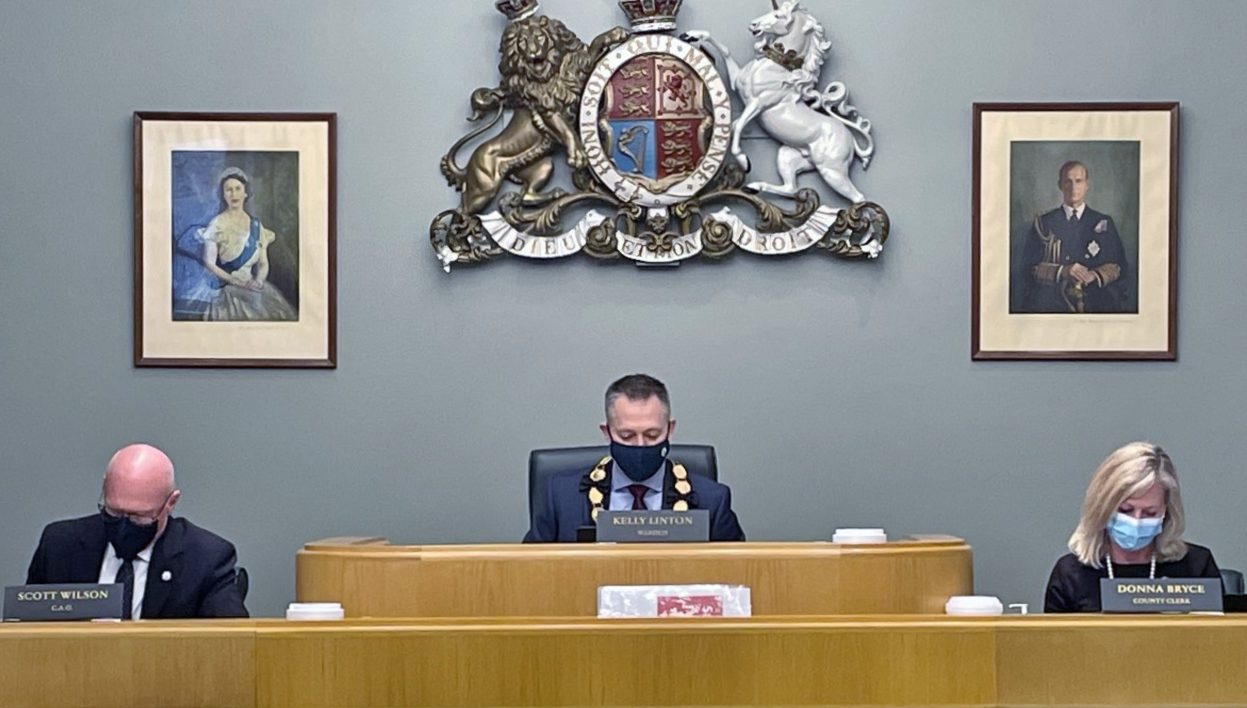GUELPH – Wellington County Warden Kelly Linton says addressing “NIMBYism” is among the keys to changing the narrative and finding solutions to a growing housing crisis.
At the March 31 county council meeting, Linton urged councillors to spread the word on the county’s new attainable housing public communications strategy.
“Right now being able to afford to live in Wellington County is one of our most urgent issues,” stated Linton in his opening remarks
“I know this is an issue across the province and I know there’s a role to be played by the province and by the federal government, but we need to focus on what we can do about it.
“Because there are actions that we can take, barriers that we can remove, that are in our sphere of influence. We need to do what we can do.”
Linton said the proliferation of a “not in my backyard (NIMBY)” attitude stymies efforts to provide more diverse housing options.
“One of the things that we can do to help is address the NIMBYism that is prevalent among the public and among some local politicians,” Linton stated.
“This is a significant barrier to more attainable housing and rental options across Wellington County.”
Linton added, “The tagline of our county’s attainable housing public campaign is ‘Everyone should be able to live here’ and it focuses on real life stories of people who cannot afford to live in our communities.”
The warden encouraged council members to share posts and links to the campaign through their own social media accounts.
“We need to take action and make some real progress,” he said.
“The first step is changing the narrative and demonstrating how important it is for us to provide affordable living options for people at every stage of their lives.”
Growth forecasts presented as part of a report on a review of the county’s official plant note the projected average annual population growth rate between 2016 and 2051 is 1.5 per cent.
“To accommodate the long-term population forecast over the 2021 to 2051 planning horizon, the county will require an additional 22,000 new households be constructed, or approximately 730 new households a year,” states the report from manager of policy planning Sarah Wilhelm presented at the March 10 planning committee meeting.




